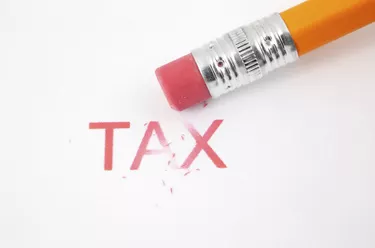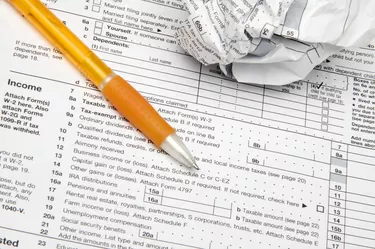
Unemployed people who withdraw money from 401k accounts held with former employers are normally required to pay income tax on the amount withdrawn. The Internal Revenue Service imposes a 10 percent penalty tax on withdrawals made by people who have yet to reach retirement age. Additionally, if you liquidate your 401k you may not qualify for unemployment benefits.
401k Withdrawals
Video of the Day

401k accounts are funded with pretax money, which means that whenever you make withdrawals, regardless of age, you must pay ordinary income tax on the amount withdrawn. For tax purposes, the IRS regards age 59 1/2 as the official retirement age, and anyone accessing retirement funds prior to that age also has to pay a 10 percent tax penalty. However, if you leave your job or lose your job during or after the year you turned age 55, you do not have to pay the 10 percent penalty.
Video of the Day
Avoiding Tax Penalties

The IRS waives the 10 percent early withdrawal penalty in certain instances, such as when a 401k account holder becomes permanently disabled or dies. One exception to the tax penalty that often benefits unemployed people involves health care costs. If your annual medical costs exceed 7.5 percent of your adjusted gross income, you can withdraw sufficient funds to cover the expense from your 401k penalty-free.
Unemployment

State laws pertaining to unemployment benefits vary greatly, but many people who are involuntarily laid off are eligible to receive unemployment benefits. The amount of unemployment benefit that you receive depends on your gross income. If you cash in your 401k, states including New Jersey, regard 401k withdrawals as pension income. If your 401k includes company matching contributions, New Jersey and many other states reduce your unemployment benefit by 50 percent of the amount that you withdraw from your 401k.
Other Considerations

When you lose your job, both your 401k contributions and employer contributions to the account cease. However, funds invested continue to grow tax-deferred, and you can roll over funds to an Individual Retirement Account and maintain those tax benefits. If you owe a 401k loan at the time you lose your job, you must repay it in full or accept it as a taxable distribution. The 10 percent tax penalty applies to outstanding loans that are recategorized as distributions.